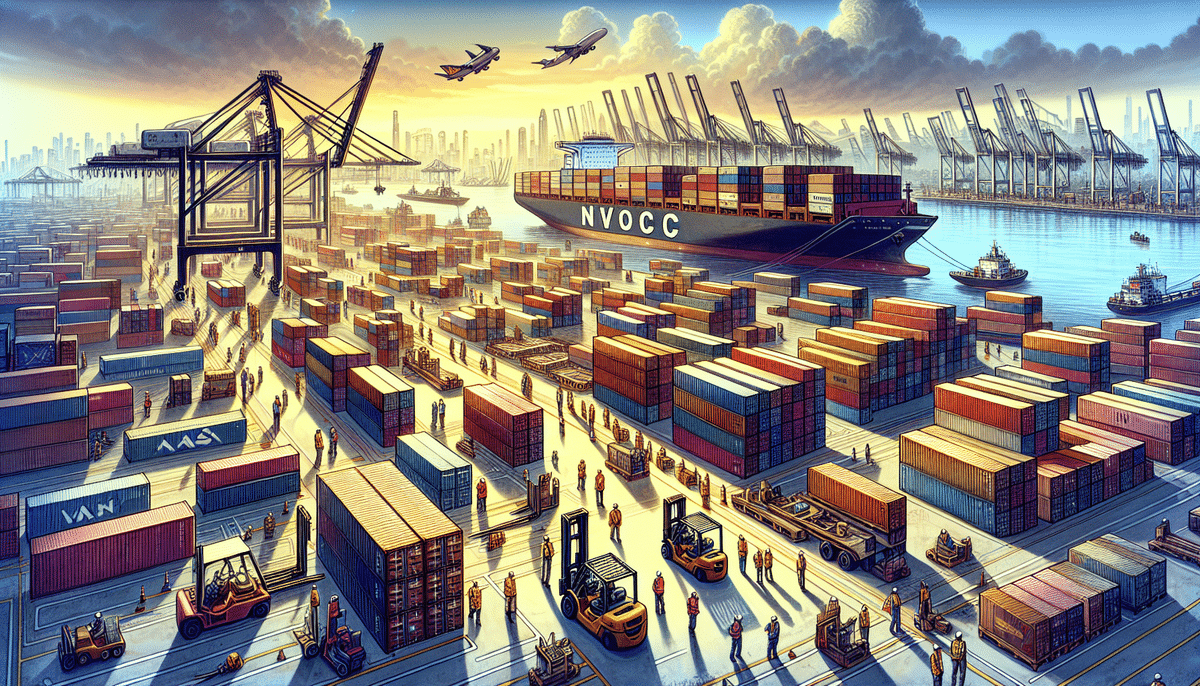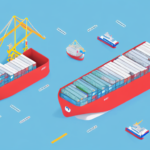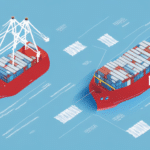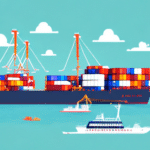What Is an NVOCC (Non-Vessel Operating Common Carrier)?
NVOCC stands for Non-Vessel Operating Common Carrier. This term refers to freight companies that do not own ships but provide comprehensive shipping services. In essence, NVOCCs act as intermediaries between shippers and vessel-owning carriers. Instead of owning the ships themselves, NVOCCs subcontract with vessel owners to transport goods on behalf of their clients. NVOCCs perform various tasks in the shipping industry, including booking cargo space, issuing bills of lading, and providing transportation logistics solutions for importing and exporting goods.
Understanding the Role of NVOCC in the Shipping Industry
The role of NVOCCs is critical in the shipping industry. They provide cost-effective and reliable shipping solutions to shippers by leveraging their extensive knowledge of the industry. NVOCCs have a thorough understanding of the processes and legal frameworks involved in shipping, allowing them to guide their clients throughout the shipping process. Additionally, NVOCCs have established relationships with carriers and other service providers in the industry, enabling them to negotiate better rates and transit times on behalf of their clients.
Moreover, NVOCCs offer value-added services such as:
- Cargo consolidation
- Warehousing
- Customs clearance
These services help shippers streamline their supply chain and reduce their overall shipping costs. NVOCCs also provide real-time tracking and monitoring of shipments, allowing shippers to have complete visibility of their cargo throughout the shipping process. This level of transparency and control is crucial for businesses that rely on timely and efficient delivery of their goods.
The Differences Between NVOCC and Freight Forwarders Explained
Both NVOCCs and freight forwarders serve as intermediaries between shippers and carriers, but there are key differences:
- Ownership of Vessels: NVOCCs do not own vessels but are responsible for the transportation of goods, whereas freight forwarders arrange transportation without handling the physical transport.
- Responsibility: NVOCCs act as carriers and are liable for loss or damage during transportation. Freight forwarders do not assume liability and typically arrange cargo insurance for their clients.
- Service Scope: NVOCCs often provide complete shipping solutions with specific carriers, while freight forwarders work with multiple carriers to find the most cost-effective and efficient options.
Understanding these differences can help businesses choose the right service provider for their shipping needs.
Why NVOCCs Are Becoming Increasingly Popular in Global Shipping
NVOCCs are gaining popularity in global shipping due to their flexibility and cost-effectiveness. In today's global economy, businesses require shipping solutions that are adaptable and efficient. NVOCCs offer tailored solutions to meet specific shipping needs and leverage their industry knowledge and connections to secure the best rates and transit times, reducing costs for their clients.
Additionally, NVOCCs excel in handling complex logistics, including:
- Customs regulations
- Documentation requirements
- Cross-border transportation challenges
This expertise allows businesses to focus on their core operations while leaving the shipping process to the experts. Furthermore, NVOCCs provide high levels of transparency and real-time tracking, fostering trust and ensuring timely delivery of goods.
The Benefits of Using an NVOCC for Your Shipping Needs
Utilizing an NVOCC offers numerous benefits:
- Comprehensive Shipping Solutions: Manage shipments across multiple carriers and service providers seamlessly.
- Logistics Expertise: Handle cargo documentation, warehousing, and customs clearance effectively.
- Competitive Rates: Leverage established relationships with carriers to reduce shipping costs.
- Valuable Insights: Optimize shipping processes with expert advice and flexible shipping options like cargo consolidation.
- Real-Time Tracking: Enhanced visibility and control over the supply chain.
These advantages make NVOCCs a valuable partner for businesses looking to optimize their shipping operations.
How NVOCCs Help Simplify Complex Shipping Processes
NVOCCs simplify complex shipping processes by acting as a single point of contact, coordinating all aspects of shipping, including:
- Transportation
- Documentation
- Customs clearance
This comprehensive approach saves time, streamlines operations, and reduces the likelihood of errors or delays. Additionally, NVOCCs optimize shipping routes and transit times through established relationships with carriers and service providers.
Furthermore, NVOCCs offer additional services such as:
- Cargo insurance
- Warehousing
- Distribution
These services provide businesses with a more integrated shipping solution, ensuring compliance with international shipping regulations and enhancing overall efficiency.
The Legal Framework Governing NVOCCs and Their Responsibilities
The legal framework for NVOCCs varies by country or region, but generally includes responsibilities such as:
- Securing transportation arrangements
- Issuing bills of lading
- Ensuring compliance with international shipping regulations
- Providing written contracts outlining service terms and conditions
Non-compliance with these obligations can result in significant fines, legal liability, and reputational damage. Beyond legal responsibilities, NVOCCs play a crucial role in the global supply chain by offering services like consolidation, deconsolidation, and freight forwarding, tailored to meet clients' unique needs.
Additionally, NVOCCs are adapting to industry changes by:
- Investing in digital platforms for streamlined operations
- Adopting sustainable shipping practices, such as using alternative fuels and optimizing routes to reduce emissions
Factors to Consider When Choosing an NVOCC for Your Business
When selecting an NVOCC, consider the following factors:
- Experience and Reputation: Look for a track record of successful shipping solutions and positive client references.
- Carrier Relationships: Ensure the NVOCC has established connections with reliable carriers for efficient shipping.
- Cost-Effectiveness: Evaluate fees and ensure the NVOCC can provide competitive rates without compromising quality.
- Customer Service: Choose an NVOCC with a dedicated support team that offers regular updates and is responsive to inquiries.
- Technology and Digital Capabilities: Opt for an NVOCC with user-friendly online platforms for tracking shipments, accessing documents, and communication.
These considerations will help you select an NVOCC that aligns with your business needs and enhances your shipping efficiency.
An Overview of the Services Offered by NVOCCs
NVOCCs provide a comprehensive range of services to shippers, including:
- Door-to-door transportation
- Warehousing
- Cargo consolidation
- Customs clearance
- Documentation management
- Freight insurance
- Packaging solutions
- Shipment tracking and monitoring
Additionally, NVOCCs offer value-added services such as:
- Supply chain management
- Inventory management
- Order fulfillment
These services help shippers streamline their operations and reduce costs by consolidating logistics needs with a single provider. NVOCCs also specialize in handling specialized cargo, including hazardous materials, oversized cargo, and perishable goods, ensuring compliance with relevant regulations and safety standards.
How to Work with an NVOCC to Optimize Your Supply Chain Efficiency
To optimize your supply chain efficiency through an NVOCC partnership:
- Identify Your Shipping Needs: Collaborate with your NVOCC to understand and define your unique shipping requirements.
- Communicate Clearly: Share shipping deadlines, preferred routes, and any specific considerations to ensure the NVOCC can tailor solutions effectively.
- Provide Accurate Information: Submit complete and precise cargo details to avoid shipping delays and compliance issues.
- Maintain Open Communication: Stay in touch with your NVOCC to track shipment progress and promptly address any concerns.
Following these steps will help you leverage the full capabilities of your NVOCC, resulting in a more efficient and responsive supply chain.
The Future of NVOCCs in the Evolving Shipping Industry
The future of NVOCCs is promising as the global shipping industry continues to evolve. Factors driving this growth include:
- Increasing global trade volumes
- New international shipping regulations
- Advancements in shipping technologies
NVOCCs are well-positioned to meet these demands by leveraging their expertise, experience, and industry connections to offer tailored shipping solutions. Furthermore, NVOCCs are embracing emerging technologies such as:
- Artificial Intelligence (AI)
- Blockchain for secure and transparent transactions
These technologies enhance the efficiency and reliability of shipping services, ensuring NVOCCs remain competitive and capable of meeting the dynamic needs of businesses worldwide.
Case Studies: Success Stories of Businesses that Have Utilized NVOCC Services
Numerous businesses have successfully optimized their shipping operations through NVOCC partnerships. For example:
- A furniture manufacturer in China increased its exports by 21% after partnering with an NVOCC that provided tailored shipping solutions. The NVOCC introduced new shipping routes and transportation methods, reducing both shipping costs and transit times.
- A chemical company in India partnered with an NVOCC that offered comprehensive logistics solutions, resulting in a 15% reduction in logistics costs. The NVOCC managed documentation, customs clearance, and optimized shipping schedules, enhancing overall efficiency.
These case studies highlight the significant benefits of collaborating with an NVOCC to enhance shipping solutions and minimize operational costs.






















